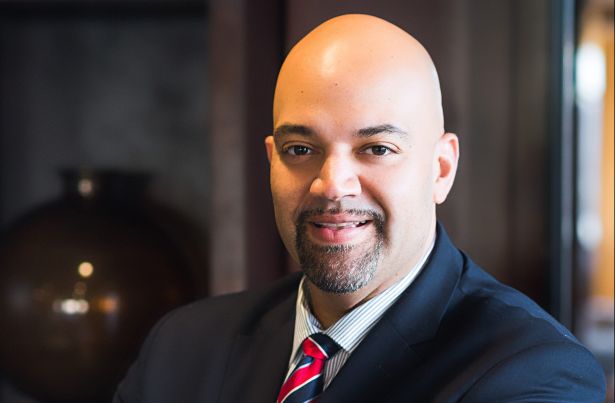
Bo Menkiti, founder and CEO of the Menkiti Group in Washington, D.C.
Bo Menkiti’s entrance into real estate came by way of his elderly neighbor.
At the time, Menkiti was working at College Summit, an educational nonprofit, and bought a house in D.C.’s Columbia Heights neighborhood that shared a wall with Mrs. Becks, a woman in her 80s, whom he would often help with her trash and groceries.
Once, after traveling for work, he came home to discover that Mrs. Becks had been dead in her home for more than a week. No one had bothered to check on her for all that time.
“It hit me pretty hard that I thought I was changing the world, but I wasn’t present for the person on the other side of my flimsy townhouse wall,” Menkiti said. “I started asking myself, what could I do here in the neighborhood where I live?”
The answer turned out to be real estate. Menkiti began by buying and flipping homes in Columbia Heights, then quickly graduated to running a residential brokerage, which he then parlayed into a commercial brokerage and a development arm as well.
Now, Menkiti runs the Menkiti Group, which has developed more than 2 million square feet of real estate; manages 1.5 million square feet of assets; and has invested more than $225 million, particularly in emerging neighborhoods in D.C.
Menkiti’s projects include the 788,000-square-foot Bond Bread Factory development, just outside the Howard University campus, designed to knit the campus to the rest of the neighborhood; a project at the Navy Yards in partnership with Brookfield Properties; and the two-phase MLK Gateway project, which is part of its broader development strategy in Anacostia.
Menkiti is pioneering its community-based development model in Anacostia, an approach he first used organically in the Brookland neighborhood as he was first starting out. The idea is to take a neighborhood-level approach to development, rather than think about each project individually. “Our approach has been to try and acquire a critical mass of real estate in those areas, and then to center it around a catalytic public-private project,” Menkiti said.
The key is to work with communities. “You have to actually look at communities as having assets and capability, instead of just having needs,” Menkiti said.
The Stories Behind the List



